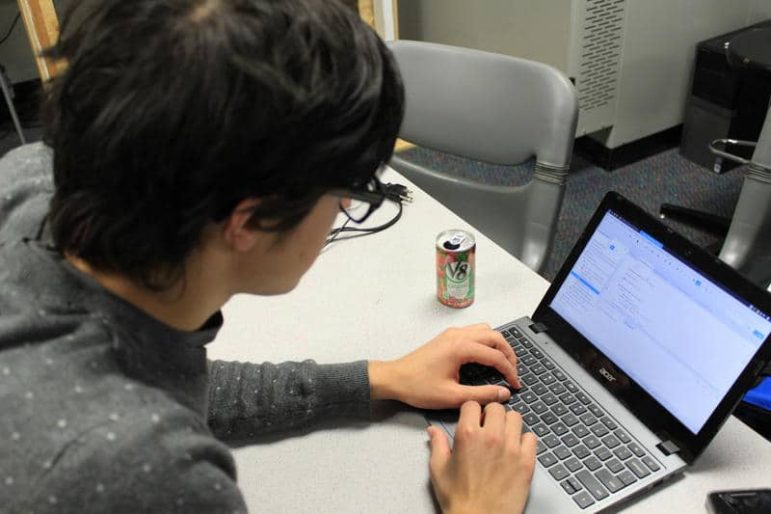Computer coders have found a champion in Florida Senator Jeremy Ring. Ring, a former Yahoo! executive who helped build the company, believes coding and technology is an art, rather than a science. He wants to attract more students to STEM studies. As part of the Southern Education Desk series, Priming the Pipeline for STEM in the South, Lynn Hatter of WFSU reports on Ring’s proposal to allow Florida students to choose coding in order to fulfill a foreign language requirement for college.
Florida students don’t have to take a foreign language to graduate from a public high school, but the state’s public university system does require at least two years of study in another language. Computer Coders have found a champion in Florida Senator Jeremy Ring. Ring, a former Yahoo! executive, believes coding and technology is an art, rather than a science. The Margate Democrat says why not broaden the language offerings? Instead of the usual suspects, like French or Spanish, and for those who are true romantics—Latin… why not something like Python? Or C++?
“Whether you’re going into politics, sales, it doesn’t really matter. You need to have a technology understanding in order to compete in life and in a professional environment,” says Ring.
Code runs the world. It’s what your computer runs on and how televisions operate. At Leon County’s SAIL High School, it’s hopefully the ticket to a big win in an upcoming robotics competition.
Its OctoPiRates robotics club consists of about a dozen students and meets after school.
During a recent visit, the group’s 3-D printer is whirring away as it turns PVC pipe into a red, Lego-like piece that will be added on to the robot the students are building.
The vehicle, with its eight lime-green rubber wheels, square-framed steel structure and vertical scooping arm, has been designed to roll, climb, grab and as part of an upcoming competition. The students are in the final days before their project gets packed up and sealed off to compete. There’s not a class dedicated solely to coding and many of the OctoPiRates, like Ram Moore, the group’s lead programmer, are self-taught.
“I mostly learned on my own, and I took AP Computer science, and from there, I taught myself some other skills,” says Moore.
The proposal is also getting kudos from Silicon Valley, including Microsoft Chairman John Thompson. “If you had a chance to take coding and coding triggered a thought in your mind that I can do this and do it well, and it has the long term consequences of a career in technology which, right now, are some of the highest paying careers in our country, why wouldn’t you do that? I think that’s a great idea,” says Thompson.
But it’s not all props for coding in Florida. Many people acknowledge the need for coding. What they don’t like is the idea it could replace what many consider another necessary skill: knowing another language.
Linda Markley, with the Florida Foreign Language Association, says the benefits of bilingualism shouldn’t be ignored. “The Florida Bureau of Labor market statistics for 2023 projections for new job openings says over 300,000 will require world language skills, as opposed to 48,000 for computer coding.” She argues coding isn’t the same as a world language.
But OctoPiRate Alexander Olson says believes not only is coding relevant, its vital.
“It’s a whole other language. I would have rather have learned something like this back when I was in middle than learning Spanish for 2 years, that I’ve already forgot half of, and that was only 2-3 years ago,” says Olson. “This would have stuck with me a lot longer and is something I’m interested in.”
Ring insists it’s not an either-or proposition. He says coding isn’t about creating new engineers, it’s an essential skill people need to have to navigate changing technologies. He argues if Florida is serious about its foreign languages, it needs to start kids out at a younger age in immersion programs.
But until then, Ring believes there’s room for both.
This report is supported by a grant from the Corporation for Public Broadcasting.

